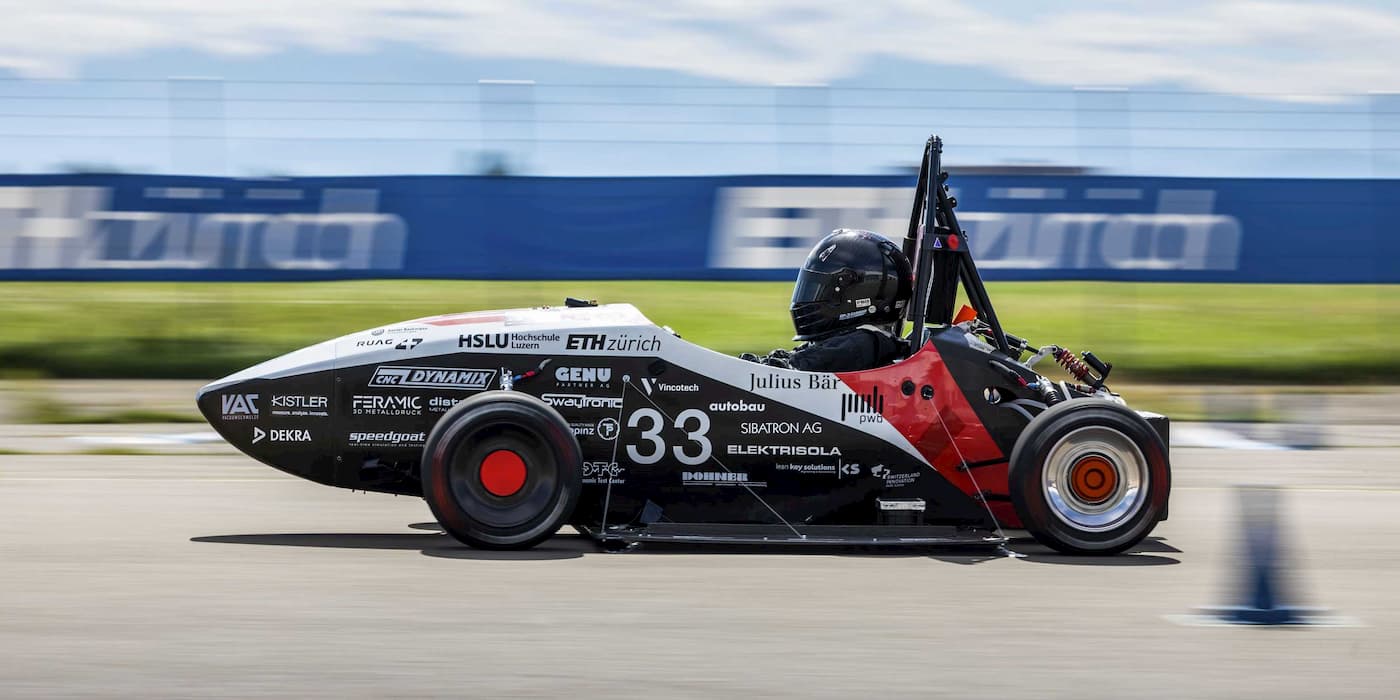
Swiss students just broke the Guinness World Record for the fastest accelerating EV in their hand-built electric car. The all-electric car crushed the previous record, running from 0 to 62 mph (0-100 km/h) in under a second.
Swiss students break Guinness EV acceleration record
Members of the Academic Motorsports Club Zurich (AMZ) from research university ETH Zurich and Lucerne University spent every spare minute working on the “mythen,” their electric vehicle.
Driven by Kate Maggeti, the hand-built electric car raced from 0 to 62 mph in just 0.956 seconds, crushing the previous record of 1.461 seconds. The previous record was set by a German team from the University of Stuttgart.
Guinness World Records confirmed the vehicle broke the EV acceleration record at the Switzerland Innovation Park in Duebendorf.
Every component in the EV was developed by the students from printed circuit boards (PCBs) and optimized for speed. For example, with a lightweight carbon and aluminum honeycomb, the hand-built electric car only weighs around 309 lbs (140 kilos).
Powered by four electric motors and a unique powertrain developed by the students, the vehicle has around 326 horsepower (240 kW).
“But power isn’t the only thing that matters when it comes to setting an acceleration record,” Dario Messerli, head of aerodynamics at AMZ, explained.
Although Formula One cars solve this through a rear (or front) wing that pushes the car to the ground, this is only a solution at certain speeds. To ensure grip from the start, the team developed a vacuum system that helped transfer power to the ground.
The EV world acceleration record has gone back and forth between AMZ and the University of Stuttgart team. AMZ won it in 2014 and 2016, with the team from Germany winning it back each of the following years. Will they do it again next year? Less than a second will be hard to beat.
To put that into perspective, it’s 1.5 seconds faster than the Tesla Model S Plaid (about 2.5s) and nearly a full second faster than the Rimac Nevera hypercar (1.81s).
Source: ETH Zurich
